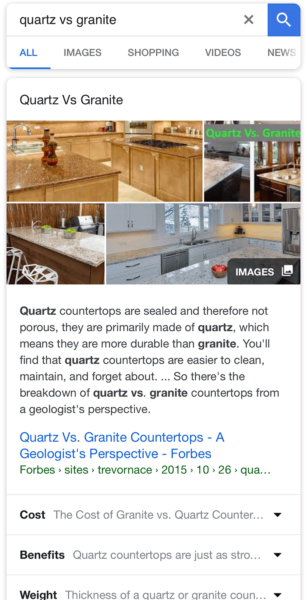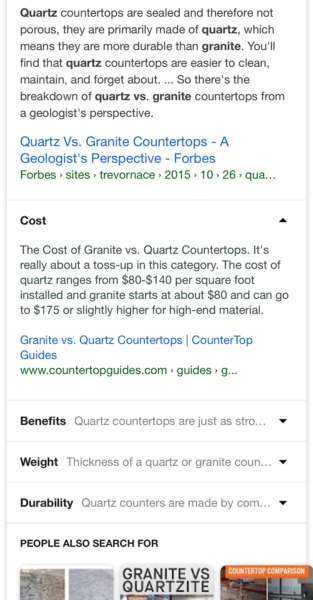Google launches new expandable featured snippets with more information
The new featured snippets provide aggregated access to additional sources about a search query.
Google has announced a new form of featured snippets aimed at showing you more useful aspects of the topic around your search. So, when you search for a query that triggers this new format, you will get a handful of expandable snippets below the main featured snippet with more information.
For example, if you search for [quartz vs. granite] you get the main featured snippet, with images, and then four additional featured snippets that can be expanded to show you ideas on costs, benefits, weight and durability. Another example: When you search for [emergency fund], you get the main featured snippet, followed by size, importance, savings account and purpose.
Here are some screen shots showing this off:
This is what it looks like when you expand one of the sub-featured snippets:
Google said:
These new panels are automatically generated based on our understanding of these topics from content on the web, and we hope you find them useful as they roll out over the next few days.
This update is the latest in a series of improvements we’ve been making to help you get information quickly with Search. As always, if you have any feedback on the information you see, please let us know via the feedback link at the bottom of the search results page.
Back in February, Google announced multifaceted featured snippets, these are featured snippets that can be surfaced for queries that are sufficiently broad enough to allow for more than one interpretation of what was submitted. In these instances, the SERP returned will include more than one featured snippet, with the original query rewritten as the questions the algorithm assumes the user may have intended, and the results displayed in the multifaceted snippet will reflect those new questions.
Now, Google is doing a new form of featured snippets that allow searches to more narrow into a specific topic, as opposed to zoom out of a more generic topic.
Here is another example:
Related stories



